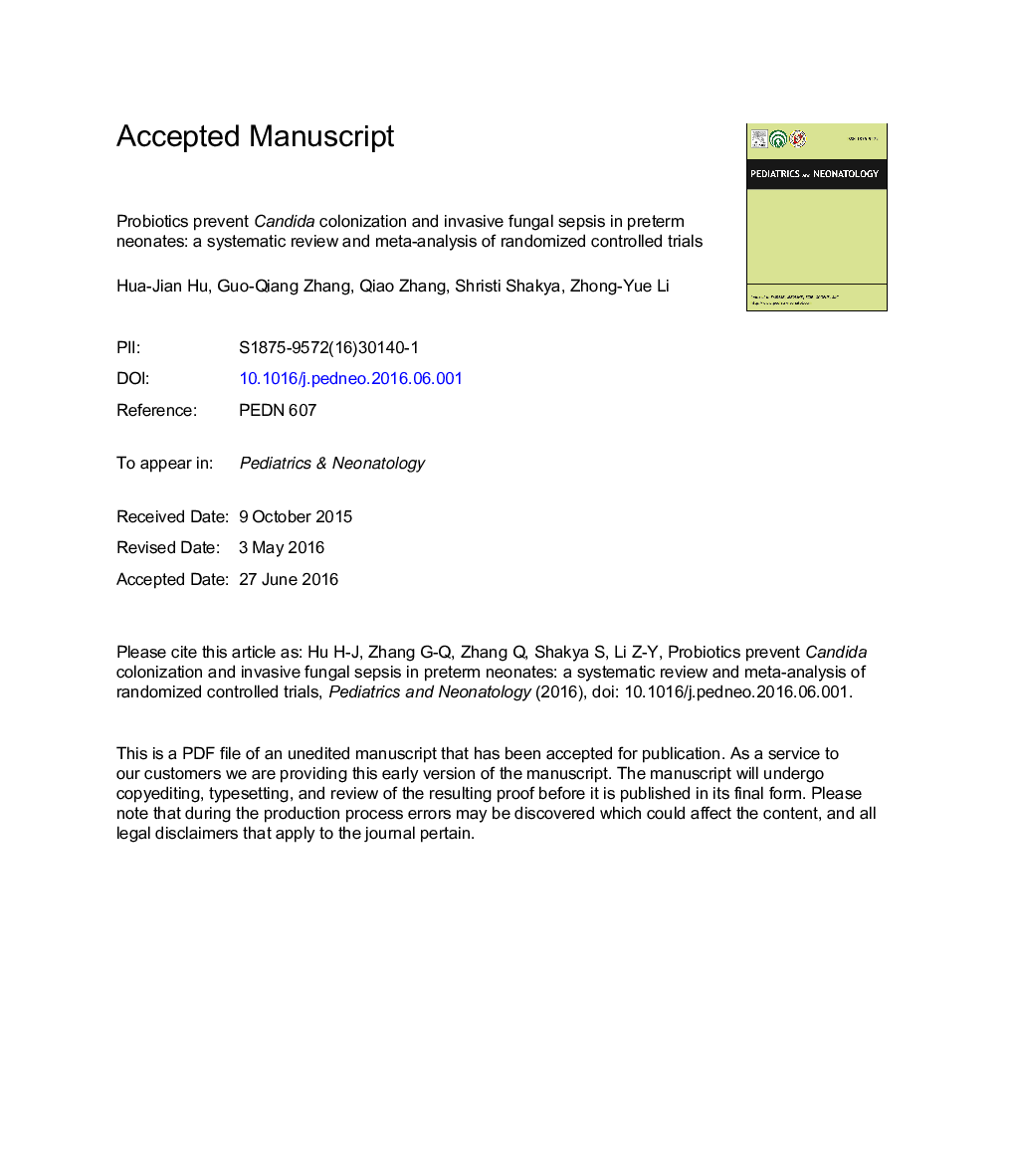| Article ID | Journal | Published Year | Pages | File Type |
|---|---|---|---|---|
| 8813476 | Pediatrics & Neonatology | 2017 | 30 Pages |
Abstract
To investigate whether probiotic supplementation could reduce the risk of fungal infection in preterm neonates in neonatal intensive care units (NICUs), we systematically searched PubMed, EMBASE, and the Cochrane Central Register of Controlled Trials databases for randomized controlled trials (RCTs) focusing on the effect of probiotics on fungal infection in preterm neonates. The outcomes of interest were Candida colonization and invasive fungal sepsis. Seven trials involving 1371 preterm neonates were included. Meta-analysis (fixed-effects model) showed that probiotic supplementation was significantly associated with a lower risk of Candida colonization (2 RCTs, n = 329; relative risk (RR), 0.43; 95% confidence interval (CI), 0.27-0.67; p = 0.0002; I2 = 0%), and invasive fungal sepsis (7 RCTs, n = 1371; RR, 0.64; 95% CI, 0.46-0.88; p = 0.006; I2 = 13%). After excluding one study with a high baseline incidence (75%) of fungal sepsis, the effect of probiotics on invasive fungal sepsis became statistically insignificant (RR, 0.88; 95% CI, 0.44-1.78; p = 0.72; I2 = 15%). When using the random-effects model, the effect of probiotics remained favorable for Candida colonization (RR, 0.43; 95% CI 0.27-0.68; p = 0.0002; I2 = 0%) but not for fungal sepsis (RR, 0.64; 95% CI 0.38-1.08; p = 0.10; I2 = 13%). Current evidence indicates that probiotics can reduce the risk of Candida colonization in preterm neonates in NICUs. Limited data support that probiotic supplementation prevents invasive fungal sepsis in preterm neonates. High-quality and adequately powered RCTs are warranted.
Related Topics
Health Sciences
Medicine and Dentistry
Perinatology, Pediatrics and Child Health
Authors
Hua-Jian Hu, Guo-Qiang Zhang, Qiao Zhang, Shristi Shakya, Zhong-Yue Li,
